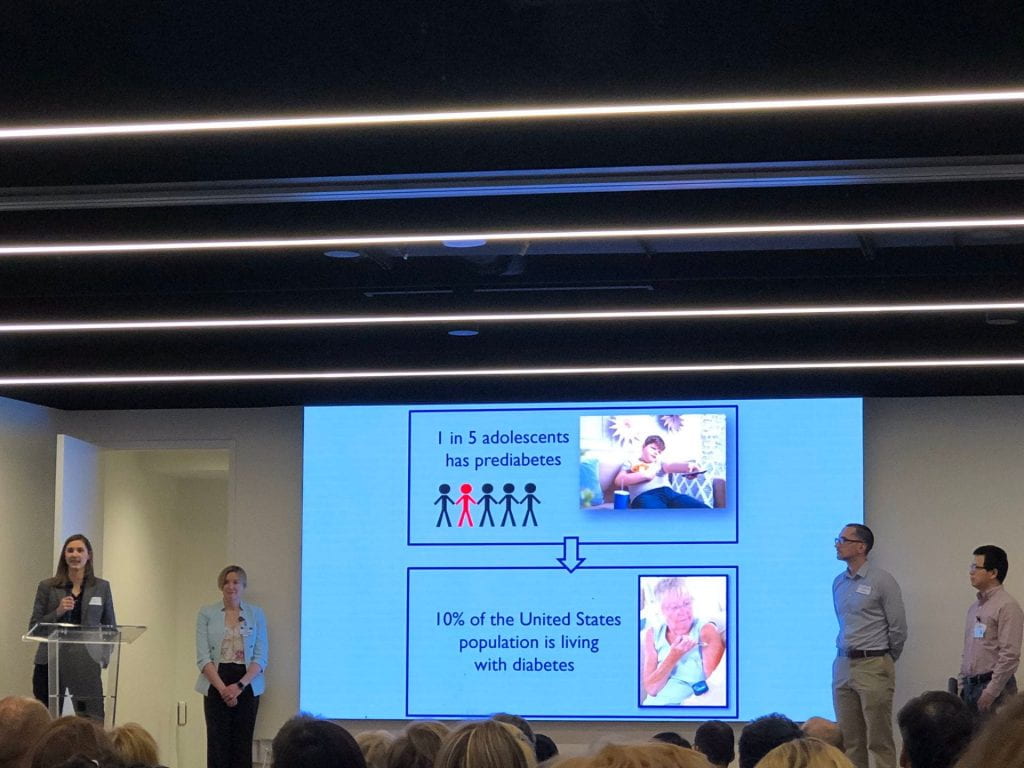The Healthcare Innovation Lab and the Institute for Informatics hosted a “Shark Tank-style” pitch session on February 28, 2020. Ten project teams requesting up to $50,000 in funds at BJC HealthCare (BJC) and Washington University School of Medicine’s (WUSM) competed in the second Big Ideas Competition.
Our own PRC faculty, Maura Kepper, presented with her team and gave their 3-minute pitch on why their Big Idea is worth funding. The judges from BJC and WUSM leadership asked tough questions and evaluateed their ideas. Maura’s team’s proposal, “Using interventional informatics to address social determinants of health during clinical care visits to promote behavior change and PREVENT Type 2 diabetes” won 3rd place!
The competition, bridging the two institutions, is intended to identify and support high-priority, novel projects from collaborative clinical, operational and research teams developing innovations informatics and health care delivery.
Titles of the 10 finalist proposals:
• Integrating real time clinical activity, physiological sensors, and behavioral responses for predicting physician burnout (IGNITE)
• Simulation modeling: Informing patient acuity and nurse staffing for optimized patient outcomes with reasonable nursing workload and affordable economic costs
• Integration of artificial intelligence (AI)-based cognitive behavioral therapy (CBT) with the electronic medical record (EMR), and effectiveness comparison to in-person CBT
• Impact of glucose variability on dynamic cognitive function in youth with T1D
• Using interventional informatics to address social determinants of health during clinical care visits to promote behavior change and PREVENT Type 2 diabetes
• Stroke app
• High-resolution trajectory mapping of post-discharge knee replacement patients, aka the TRIPP (Trajectories in postoperative pain) study
• Predictive methods and alerts to prevent COPD
• Closing the loop on unexpected imaging findings: Augmenting the process with Artificial Intelligence and Deep Learning (CLU)
• Designing a human-centered early warning system for oncology inpatients
